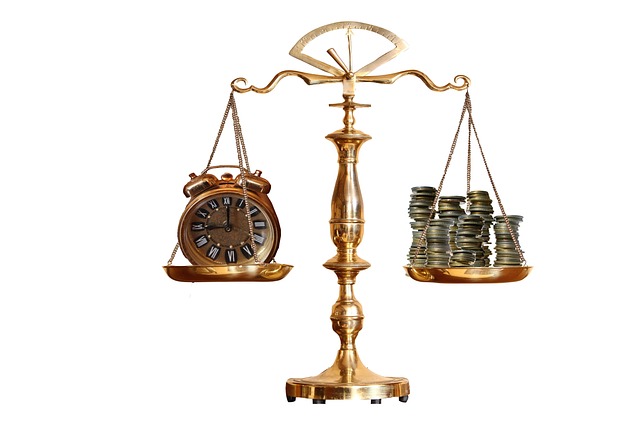Understanding jury biases in criminal cases is crucial for defense attorneys. Preconceived notions, shaped by societal experiences and media portrayals, influence decision-making. Diverse backgrounds offer opportunities for balanced trials but also challenges in connecting with all jurors. Strategically challenging biases through case preparation, cross-examination, and alternative theories ensures fair trials, upholding justice within the judicial system. This meticulous approach fosters transparency, protecting individuals accused of crimes.
“Criminal defense attorneys play a pivotal role in ensuring fairness within the criminal justice system. This article delves into the intricate process of jury selection, highlighting its significance in shaping the outcome of criminal trials. We explore the challenges posed by unconscious biases, which can significantly impact verdicts. By understanding and addressing these biases, defense attorneys can build robust defenses and ensure fair jury deliberations. Read on to gain insights into effective strategies for navigating the complexities of jury dynamics in criminal cases.”
- The Role of Jury Selection in Criminal Trials
- Unconscious Biases: A Challenge for Defense Attorneys
- Overcoming Stereotypes: Building a Solid Defense
- Effective Strategies to Ensure Fair Jury Deliberations
The Role of Jury Selection in Criminal Trials
In criminal trials, jury selection is a critical phase that significantly influences the outcome of a case. Understanding jury biases is paramount in achieving extraordinary results for criminal defense attorneys. Potential jurors bring with them a myriad of preconceived notions and stereotypes based on their respective business, cultural backgrounds, and media exposure—all of which can affect their decision-making process. Attorneys must carefully navigate this landscape to ensure an unbiased panel.
Effective strategies include thorough juror questioning to uncover hidden biases, addressing misconceptions about the legal system, and fostering an environment that promotes open-mindedness. By doing so, defense attorneys can assemble a jury capable of considering all evidence impartially. This meticulous approach is crucial across the country, where cases are decided not just on facts but also on how jurors interpret them—a process greatly influenced by their personal experiences and societal influences.
Unconscious Biases: A Challenge for Defense Attorneys
Understanding jury biases in criminal cases is a significant challenge for defense attorneys. Unconscious biases—formed through societal experiences and reinforced by media portrayals—can influence how jurors perceive evidence, witness testimony, and even the accused’s character. This presents a complex issue as these biases often operate below conscious awareness, making it difficult for individuals to recognize their impact on decision-making processes.
In addition to the challenges posed by unconscious biases, defense attorneys must navigate the diverse demographics of juries across the country. From urban areas with high concentrations of minority populations to suburban communities with varying socio-economic backgrounds, each jury brings its own unique perspective and experiences. This diversity can be both an opportunity for a balanced trial and a challenge when trying to connect with all jurors, especially in cases involving white-collar defense or matters that resonate within the philanthropic and political communities.
Overcoming Stereotypes: Building a Solid Defense
In the realm of criminal defense, one of the significant challenges attorneys face is overcoming stereotypes and biases that can unduly influence a jury’s decision. Understanding jury biases in criminal cases is crucial to building a solid defense. Many individuals often hold preconceived notions about those accused of crimes, which can lead to unfair judgments before any evidence is presented. For instance, stereotypes related to socioeconomic status or racial backgrounds can taint the perception of the defendant, making it imperative for defense attorneys to challenge these biases through strategic legal arguments and compelling evidence.
By navigating all stages of the investigative and enforcement process meticulously, criminal defense attorneys play a pivotal role in avoiding indictment or securing winning challenging defense verdicts. This involves meticulous case preparation, thorough cross-examination of witnesses, and presenting alternative theories that counter the prosecution’s narrative. By addressing these biases head-on and employing robust legal strategies, defense attorneys can ensure their clients receive fair trials, thereby upholding the fundamental principles of justice in our judicial system.
Effective Strategies to Ensure Fair Jury Deliberations
Ensuring fair jury deliberations is a critical aspect of criminal defense. Understanding jury biases inherent in criminal cases is a strategic must for attorneys. By recognizing potential prejudices, lawyers can navigate complex dynamics and advocate effectively for their clients throughout all stages of the investigative and enforcement process.
Delving into these biases allows defense attorneys to challenge unfair assumptions, present balanced arguments, and guide jurors towards impartial consideration. This involves meticulous preparation, thorough examination of evidence, and artful presentation of facts that counterbalance any preconceived notions. Such strategies foster a more transparent and just trial environment across the country, ultimately protecting the rights of individuals accused of crimes.
Understanding jury biases is paramount for criminal defense attorneys to ensure fair trials. By recognizing and addressing unconscious prejudices, attorneys can build robust defenses that counter stereotypes. Employing effective strategies throughout jury selection and deliberation processes is essential to foster inclusive discussions and reach just outcomes. Armed with this knowledge, legal professionals can better navigate complex cases, ensuring every client receives a defense grounded in equity and impartiality.






